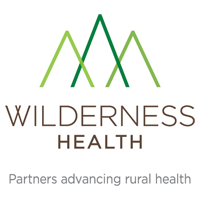
Student Research Explores Rural Mental Health Care Barriers
Thursday, July 21, 2022
BY ROSE SEMENOV
New research by a recent Carlson School of Management graduate is helping a northern Minnesota telehealth network develop strategies to increase awareness about mental health services.
When Carina Hebl, ‘22 BSB, moved from Two Harbors in northern Minnesota to the Twin Cities for college, she noticed the stark urban-rural divide in the availability of mental health resources.
“Mental health just wasn't talked about in Two Harbors,” Hebl says. “If I had wanted to go to therapy, I wouldn't have even known where to start. When I came to Minneapolis and saw the impact these services can have, I was like, 'Why is this not happening in rural America?'”
Working with Supply Chain and Operations Department Chair and Professor Kingshuk Sinha, Hebl developed her honors thesis to evaluate why residents in rural areas postpone mental health care. For her data, Hebl used the Bridge to Health 2020 Survey, which went out to residents in northern Minnesota and Wisconsin. Since many of the survey respondents hailed from Hebl’s hometown and surrounding areas, her passion for the study grew.
“It made the project feel real,” Hebl reflected. “The research isn’t just statistics. These are people. While looking over the respondents’ answers, I felt like that could have been me.”
While reviewing the surveys, she applied Sinha’s “3 A Framework”—affordability, access, and awareness—to determine the greatest barriers to care. Initially, Hebl thought access would be the dominant reason for delaying mental health care, but was surprised to find awareness consistently ranked as the highest barrier across all demographics. The surveys showed respondents were often unaware of what mental health services were available or if they even needed care.
“These findings highlight the challenge of rural areas,” Hebl says. “There’s a total dispersal of people and resources and you need to figure out a way to spread this information because delaying care
can lead to even worse mental health problems.”
Research Makes Hometown Impact
Motivated by her hometown connection to the research, Hebl shared her analysis with the Wilderness Health Committee. Wilderness Health is a Two Harbors-based collaborative of independent health care providers focused on improving rural health care in northeastern Minnesota.
“It was incredible to be able to take responses from that survey and actually apply my findings back to those communities, the same communities I grew up in,” Hebl shared.
Zomi Bloom, Wilderness Health Telehealth program manager, applauded Hebl’s diligence and passion for the research. Bloom says her findings are making an immediate impact by helping inform their marketing strategy.
“We’re really focusing on that awareness piece and not assuming everyone knows when and how to get health care,” Bloom says. “We really need people to know what signs and symptoms they should be looking for to seek help.”
Professor Sinha called Hebl’s research a “notable contribution” as the insights could help form actionable policies to prevent people from postponing mental health care.
“This thesis exemplifies that the principles of business–specifically, principles of supply chain management–can be a force for good by way of reducing inequities and disparities in delivering mental health care in rural communities,” Sinha says.
Following graduation, Hebl started working at Medtronic as an associate strategic sourcing specialist. She aims to remain in the health industry with the goal of advancing the quality of health care and reducing inequities.


